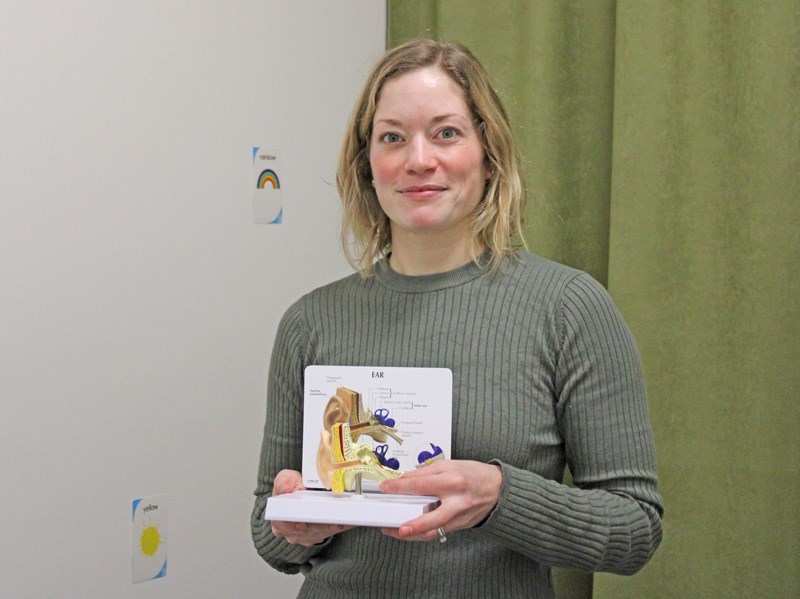For people who live with a vague sense of dizziness or vertigo for years without any relief, sometimes vestibular – inner ear – therapy is the only answer.
Carly Chuby has worked as a physiotherapist in Prince George for the last 11 years and while many therapists offer vestibular treatments, she is now a certified vestibular therapist working in northern B.C.
Chuby and her husband Jon, who is also a physiotherapist, opened their own clinic called Altea Physiotherapy and Wellness in February this year where she is now treating patients who suffer from vestibular disorders.
“There are three things that make you feel balanced: what you see with your eyes, what you feel underneath your feet, and your inner ear organ or your vestibular apparatus,” explains Chuby.
She said the job of the vestibular system is to tell your brain where your head is in space so you’re not walking around with your head tilted 45 degrees, for example.
“If something is wrong with this organ you can fall, you can get very dizzy and you can get conflicting messages to your brain which is very disorienting, troublesome, and scary for some people,” said Chuby.
“In this population that has this vague dizziness getting this system assessed is so important because it can be a vestibular disorder and it is super treatable with exercises, certain medications or maneuvers.”
Chuby said she became interested in vestibular disorders when she was attending the University of Manitoba and one of her placements also specialized in vestibular therapy.
In 2017, she then completed her certification through Emory University in Atlanta, Georgia.
“You have to take such a long amount of time to tease through these vague symptoms patients are getting but come to these conclusions that are complex and difficult to figure out,” said Chuby.
“Then you make a huge difference in these people’s lives because they can drive again, they can walk again, they can go to work again, they can play with their grandkids.”
She said the most dramatic difference she sees is in treating benign positional paroxysm vertigo (BPPV) which is caused by crystals in the inner ear that can become dislodged.
Chuby said she can relieve the feeling with a simple four-minute maneuver.
“I have had patients that have had it for 20 years, untreated, and have just learned to live with it. I can cure them and it is this dramatic change in their life because now they can lay flat again, they can shoulder check, bend forward to tie their shoes, they can garden – it gets people back to their lives.”
Although she’s always wanted to return to her hometown of Winnipeg, Chuby says practicing in northern B.C. and seeing how underserved the region is keeps her in Prince George.
“Before people would be waiting six months to a year to see a neurotologist in St. Paul’s in Vancouver but I can assess most of those things and get these people back to living and they don’t need to travel so it is really rewarding and nice to be able to offer it in this community.”
Chuby says one of the big things she wants people to understand is that dizziness is not a normal process of ageing.
“There is obviously some age-related imbalance that does happen, but generally speaking, if it happens suddenly and it’s not this gradual onset and you are not 80-years-old that is not normal. You shouldn’t get dizzy when you are rolling over in bed or looking up,” says Chuby.
“Even if you have general imbalance or dizziness, get an assessment because you might have a vestibular disorder and it is very treatable.”
She says physiotherapy is a constantly emerging field and vestibular therapy is another tool in the toolbox to help people recover.
“Physio is evolving all the time and I get to be a part of that and it is really exciting.”
To learn more about vestibular therapy you can visit Altea Physiotherapy and Wellness’s website.


